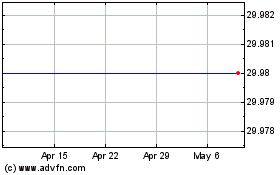Surgeons Warn Of Problems With Zimmer Knee Product
March 11 2010 - 7:03PM
Dow Jones News
Three surgeons on Thursday recommended against implanting a
certain Zimmer Holdings Inc. (ZMH) replacement knee product because
of "unacceptably high" rates of loosening and corrective
surgery.
Their report, issued at the American Academy of Orthopaedic
Surgeons' conference in New Orleans, weighed on Zimmer's shares,
sending them down 3.1% on the day to $57.03. The news also follows
talk at the conference of problems with all-metal replacement hips,
although Zimmer--the biggest player in the $11 billion
replacement-joint market--has less exposure there.
Zimmer didn't have immediate comment on the knee issue late
Thursday.
On that front, the surgeons cited issues with Zimmer "NexGen"
knees, including a component that attaches to the bottom of the
thighbone without any cement to glue it in place.
Among 108 knees operated on and analyzed after two years, 9% had
to have revision surgery, and many more had loosening that likely
needs surgery, said Richard Berger, a study author and surgeon at
Rush University Medical Center in Chicago, in an interview.
He called the revision rate "horrific" said he's now looking
into problems with Zimmer knees that do use cement. The components
in question are known as "high flex" knee parts, Berger said.
According to Berger, he and other surgeons have raised this
issue with the company, and he doesn't feel Zimmer has been
responsive. "We told them they should pull it from the market,"
Berger said.
All the surgeries in the study were conducted in 2005 by either
Berger or Craig Della Valle, also at Rush. The hospital is a major
Zimmer customer, and both Berger and Della Valle are high-volume
surgeons there. They wrote the paper with Hany Bedair, a surgeon
who formerly worked with them and now practices at Newton Wellesley
Hospital outside Boston.
Berger stressed that these aren't errors in technique and that
the issue "was related to the implant design itself."
Deutsche Bank analyst Tao Levy said this could be a "potentially
significant issue" for Zimmer and also a positive for rivals
Stryker Corp. (SYK) and Johnson & Johnson (JNJ).
The orthopedics conference has also featured scrutiny of
so-called "metal-on-metal" hip implants, which use metal surfaces
on both the ball and socket portions, amid some safety concerns.
These aren't new concerns to surgeons, but they have been aired out
in recent news reports, and analysts indicated Thursday that
doctors will ramp back on using these parts.
The metal hips are popular for perceived durability, but doctors
also have hips with ceramic and plastic surfaces at their disposal.
Because of this, the impact may be muted for companies that make
alternatives and can retain the business, although product price
differences could come into play.
Small Wright Medical Group Inc. (WMGI) relies the most on
metal-on-metal hips, analysts said. The company's stock slipped 4%
to $16.06 Thursday.
-By Jon Kamp, Dow Jones Newswires; 617-654-6728;
jon.kamp@dowjones.com
Wright Medical Group NV (NASDAQ:WMGI)
Historical Stock Chart
From Mar 2024 to Apr 2024

Wright Medical Group NV (NASDAQ:WMGI)
Historical Stock Chart
From Apr 2023 to Apr 2024
